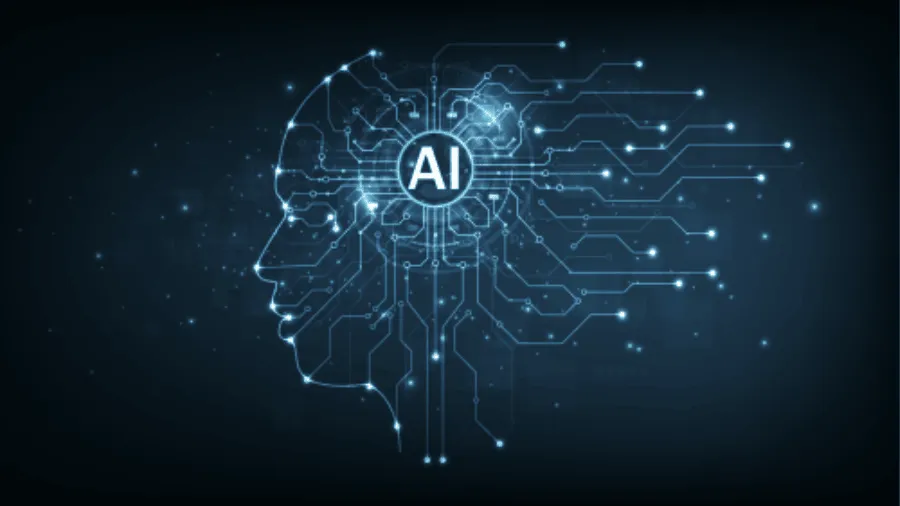Writing Poetry with Artificial Intelligence: A Revolution in Literary Creativity
Writing Poetry with Artificial Intelligence: A Revolution in Literary Creativity
In recent years, there have been tremendous developments in the field of artificial intelligence, where advanced technologies are no longer limited to technical and scientific fields but have also begun to play a significant role in the arts and literature. One of the most prominent of these developments is writing poetry with artificial intelligence, which has sparked widespread debate among intellectuals and artists around the world. In this article, we will explore how this technology works and how it can be utilized to produce creative poetic texts.
What is Artificial Intelligence and Its Relation to Poetry Writing?
Artificial intelligence is a technology that relies on designing systems and programs capable of simulating human thinking and making decisions based on data analysis. In the field of poetry writing, artificial intelligence is employed to generate poetic texts by analyzing language rules, writing styles, and various poetic patterns.
Artificial intelligence algorithms study millions of poetic texts available online and learn how to construct coherent verses in terms of meter, rhyme, and meaning. One of the most famous tools used in this field is deep learning models like “GPT,” developed by companies such as OpenAI.
How is Poetry Written with Artificial Intelligence?
The process of writing poetry with artificial intelligence involves multiple steps, including:
- Data Collection: The system is fed a large amount of poetic texts to analyze and understand their structure.
- Training: The model is trained to write poetry in various styles and forms, from classical poetry to modern poetry.
- Production: The user inputs keywords or specific topics, and the system generates poetic verses based on the inputs.
For example, if a user requests a poem about “nature and beauty,” the system will create verses inspired by the topic, taking into account style and meaning.
Advantages of Writing Poetry with Artificial Intelligence
The technology of writing poetry with artificial intelligence offers many benefits, including:
- Creative Inspiration: Writers and poets can use the texts generated by artificial intelligence as a source of inspiration to develop their works.
- Time Efficiency: Artificial intelligence helps in quickly drafting poetic verses, giving creators more time to refine the texts.
- Poetry Education: This technology can be used to teach students how to write poetry and understand its patterns.
Challenges and Criticisms
Despite the numerous advantages, the technology of writing poetry with artificial intelligence faces some challenges and criticisms, such as:
- Lack of Human Emotion: Some believe that texts generated by artificial intelligence lack the emotion and depth that characterize human poetry.
- Dependency on Data: Algorithms rely on the input texts, which limits their creativity to the existing data.
- Ethical Debate: There are concerns that this technology may replace real poets, leading to a decline in the value of human creativity.
Can Artificial Intelligence Replace Poets?
Despite the significant advancements in the field of writing poetry with artificial intelligence, it is unlikely to completely replace poets. Poetry is an expression of human feelings, thoughts, and experiences, and these emotional aspects cannot be fully mastered by machines. However, artificial intelligence can be viewed as a supportive tool for poets, contributing to their creative development and inspiration.

Writing Poetry with Artificial Intelligence
Writing Poetry with Artificial Intelligence
Tools for Writing Poetry with Artificial Intelligence
There are many tools available that assist in writing poetry using artificial intelligence, including:
- OpenAI GPT: An advanced tool based on deep learning models.
- Poem Generator: A website that helps create poems in a simple style.
- DeepAI Text Generator: A tool that relies on artificial intelligence to generate innovative poetic texts.
Conclusion
Writing poetry with artificial intelligence represents a new step in the world of literary creativity, offering vast possibilities for developing poetic texts and inspiring creators. However, human poetry remains the true essence of creativity, carrying emotions and experiences that no machine can replicate. Therefore, artificial intelligence can be seen as a complementary tool that supports poets in their creative journey without diminishing their essential role.
If you are interested in experiencing poetry writing using artificial intelligence, try one of the available tools and share your experience with us. Creativity knows no bounds, whether it stems from humans or machines!
read also:
AI for Images: The Technology Revolutionizing the World of Photography
What's your reaction?
You may also like
More in:Technology
Galaxy Watch 6 Classic Tips, Tricks & Hidden Features Guide
Apple Watch Series 9: Tips, Tricks & Hidden Features You Absolutely Must Know
Apple Watch Series 10: Top 10 Tips, Tricks & Hidden Features You Must Know
How to Customize Your S24 Ultra: Ultimate Personalization Guide
- What is Artificial Intelligence and Its Relation to Poetry Writing?
- How is Poetry Written with Artificial Intelligence?
- Advantages of Writing Poetry with Artificial Intelligence
- Challenges and Criticisms
- Can Artificial Intelligence Replace Poets?
- Tools for Writing Poetry with Artificial Intelligence
- Conclusion







